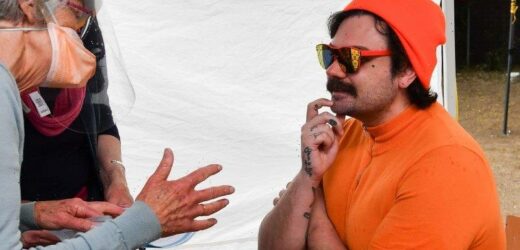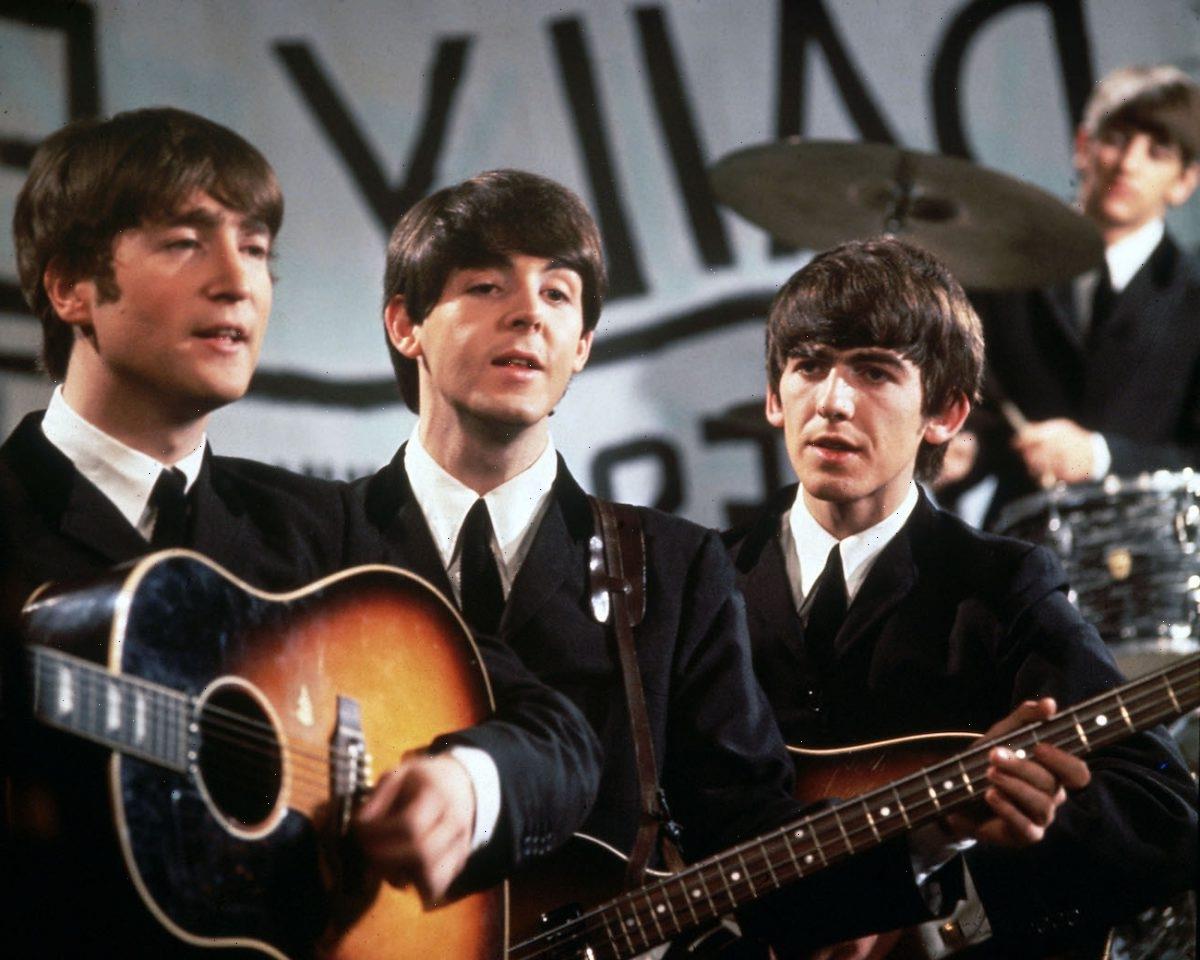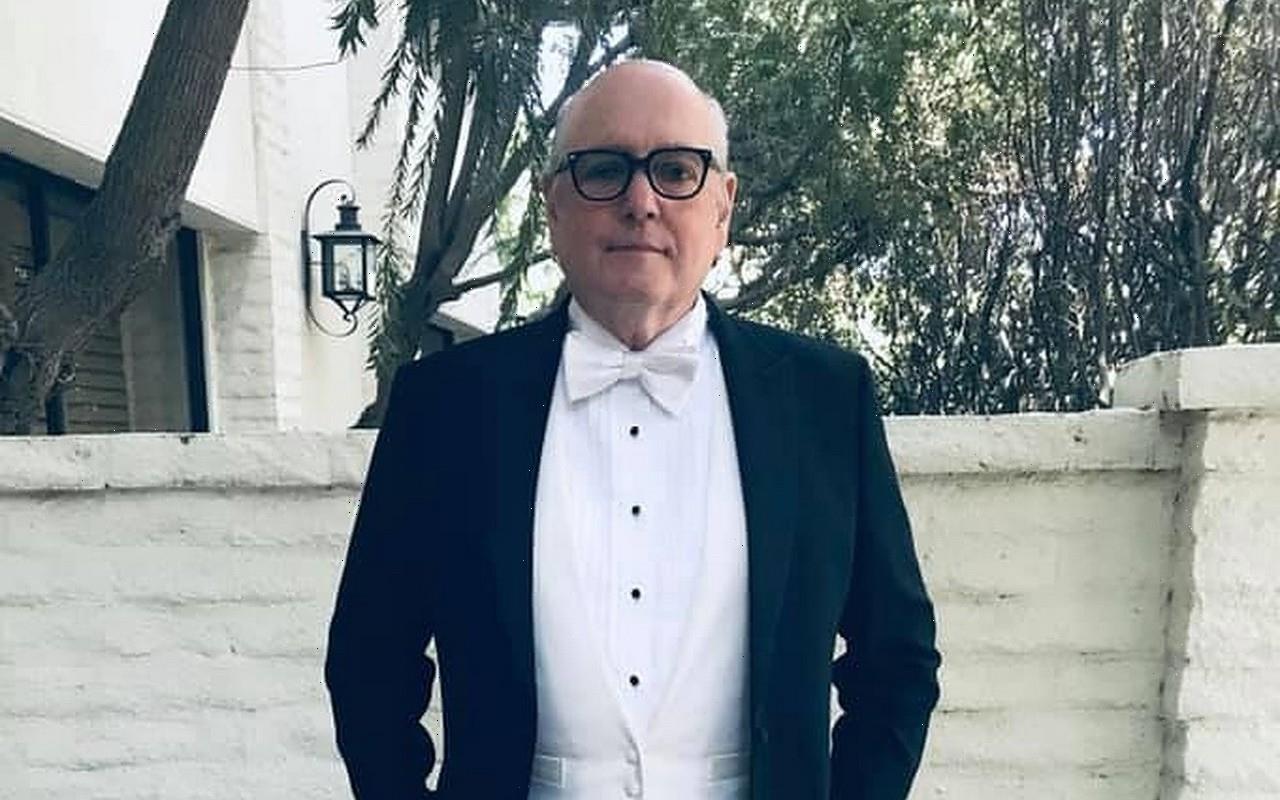For our free coronavirus pandemic coverage, learn more here.
Tyler Dirkson is in orange from head to toe.
It’s a grey day in the city and Tyler glows like a flame in a sunset turtleneck, tangerine boat shoes and reflective Louis Vuitton aviator frames.
Tyler Dirkson (left) speaking to a nurse at the Salvation Army Flagstaff Crisis Accommodation Centre about getting a COVID-19 vaccination.Credit:Joe Armao
Orange is his “favourite colour, the most vibrant” and it matches Tyler’s mood.
After months of living at the Salvation Army’s Flagstaff Crisis Accommodation Centre under lockdown, Tyler can soon do all the things he loves: “Movie theatres, retail stores, drinking venues, gyms, the casino. ”
“Rumours” about the vaccine and fears it could worsen his mental health had prevented Tyler from getting the jab. “But after a long time, I just thought the whole world’s getting vaxxed, so why not?”
A live band plays and pastries are handed out as Tyler and other rough sleepers at the centre wait to get their COVID-19 shot from a vaccination van.
For nearly five months, St Vincent’s Hospital, with the Burnett Institute and the Salvation Army, has operated a mobile vaccination centre, administering 1200 jabs in crisis centres across the city.
It all started with one pioneering doctor at the emergency ward of St Vincent’s hospital.
Registrar Sarah Simons noticed markedly low vaccination rates among the ward’s most regular attendees — people who visited the unit between about seven and 30 times a year.
Among this cohort — who are largely low-income and marginalised and come to the ward to seek refuge — vaccination levels were 20 per cent lower than the general population.
Dr Simons saw an opportunity.
Andrew gets vaccinated at the Salvation Army’s Flagstaff Crisis Accommodation Centre.Credit:Joe Armao
She and other staff started offering “opportunistic” vaccines to people who were unlikely to go to regular vaccination clinics.
It goes like this: Dr Simons walks through the ward with a spare jab in her pocket, speaks to unvaccinated patients about fears they may have of the shot, offers information about the vaccine often, sticks it in their arm, right there and then.
Indigenous Australians, people who are homeless or dealing with family violence or addiction are prioritised for the shots under the Australia-first COVID-19 vaccination program that started in September.
“There’s a huge demographic of people who actually aren’t necessarily really averse to the vaccine. Maybe they don’t know enough about it, or they’ve not really been sure where to look or who to ask,” Dr Simons said.
St Vincent’s COVID-19 vaccination van at the Salvation Army’s Flagstaff Crisis Accommodation Centre. Credit:Joe Armao
“If you have four children that you’re looking after, and you’re worried about imminent family violence, or you have to negotiate three different trams with a pram to get to a vaccination centre and wait for hours in a day to get vaccinated which means that you lose paid work … getting a vaccination is really tricky.”
The program, which immunises patients who were not admitted to hospital, has also been expanded to people being discharged.
The van extends the mission further, by vaccinating patients in the community, before they get to the emergency department.
Andrew, who did not want his surname published, got his second jab at the crisis centre.
Minutes after the shot, he vowed it would be his gateway to a tropical beach, far away.
“I want to fly soon,” he said. “To Thailand.”
In need of some good news? The Greater Good newsletter delivers stories to your inbox to brighten your outlook. Sign up here.
Most Viewed in National
From our partners
Source: Read Full Article





